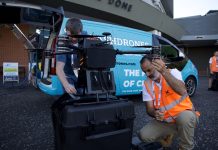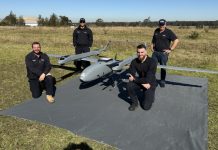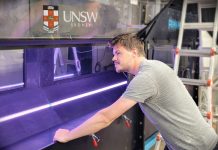Pilots’ core skills are transferrable across the entire sector of aviation
Many years ago, I was sent on a helicopter flight for an article about whether it’s easier to convert to rotary if you already have fixed-wing time.
When I asked the instructor, a jovial Irishman, whether my fixed-wing skills were a bonus, he laughed and told me he’d rather teach a random person off the street than a Piper pilot. ‘I’ll spend my first 5 lessons unteaching you things,’ he roared.
After we landed and I declared love at first flight for my rotary experience (which I was unfortunately unable to pursue due to not having a spare $100 k), I realised that although the skills are significantly different between flying fixed wing and rotary, once the fine motor skills are mastered, many of the procedural skills acquired in general aviation actually benefit all forms of flight.
I was to see this theory proven again when I went gliding and when I had my first and only experience with a drone.
While the manner of flight can be markedly different – even between fixed-wing flights, not to mention rotary, gliding, ballooning, recreational aircraft and drones – certain core skills are transferrable across the entire sector of aviation. It occurred to me that the skills we learn as a pilot are particularly valuable for drone flying.
Like many pilots, I’ve been aware of increasing publicity regarding drones, but it wasn’t until I met a drone pilot that I realised how useful having a pilot’s licence would be if entering this new world.
The skills we learn as a pilot are particularly valuable for drone flying.
Just for context, I met this drone pilot on a dating app – during COVID! – and, as we chatted, I realised how little I know about drone piloting and, later, how useful my existing skills are in understanding a new form of flight.
The drone pilot – let’s call him Donny – did not have an RPL or PPL, rather he had an RePL, a remote pilot licence. These are required for drones over 2 kg and for those operating commercially, which Donny was.
Prior to his RePL, he flew drones recreationally, for which he didn’t need a licence but needed to stick to the drone rules.
However, new rules mean if you’re flying a drone or model aircraft that weighs more than 250 g, you’ll need to get accredited to show you understand the drone safety rules. These rules commence in March 2022 and accreditation will be online.
Donny is employed to fly drones operating under the business owner’s remotely piloted aircraft operator’s certificate (ReOC) – which will sound familiar to flying instructors and charter operators – and, just like me, Donny has an aviation reference number (ARN). He completed his training though a certified training provider and had no aviation experience beforehand, other than recreationally flying drones at a model airfield. As his job requires him to fly in controlled airspace and beyond line of sight, he needed an aeronautical radio operator’s licence (which is handy, because I once left a date when the guy said ‘D for Dog’ when spelling his name).
For Donny to achieve his RePL, he undertook his training at a CASA-approved organisation and logged 5 flying hours of drone flying under standard operating conditions. Then he completed his flight test and applied for an RPA logbook, after which he registered his drone – not doing so is a criminal offence.
Being a little younger and cooler than me, Donny carried his RePL in his Apple wallet and used a CASA‑verified drone safety app before each flight.
People who already have a Part 61 licence or an ATC licence are exempt from the theory component of the RePL training; they need to have 5 hours on type and be able to pass the flight test.
While Donny had his RePL when we ‘met’ online, it was clear to me he was lacking what I would call ‘immersion in GA’. First, he was neither jaded nor cynical, nor did he speak the name of the regulator as if it were a cyanide pill lodged part way down his throat. Second, his use of acronyms was very basic (he used a plain English weather decoder to read the TAFs and METARs and while there’s absolutely nothing wrong with that – in the interest of safety, it’s a smart move – I realised I’m a little ‘old skool’ about Met).
Learning to fly a drone would be a great place for a young aviator to start.
Third, while there was much about GA he didn’t have to know – long‑range navigation, higher altitude weather, engine management techniques, etc – his use of checklists and aviation operational documents was outstanding. I’ve made no disguise of my love of the list and its safety case in general aviation, so it was interesting to observe another take the same professional approach to drone flying as I like to think I take to flying single‑engine fixed-wing aircraft.
While my relationship with Donny never took off, my time spent chatting about drones made me realise that learning to fly a drone would be a great place for a young aviator to start – it teaches hand/eye coordination, the (often daunting) technique of speaking on the radio, the use of airspace, understanding meteorological conditions and use of procedures which are universal across aviation. Conversely, as this was mid-COVID and my aviation colleagues were one by one accessing JobKeeper and JobSeeker, flying drones provides another opportunity for pilots taking a break from their airline or instructing careers, as the skills are so simple to transfer.
Careers in the delivery systems area – food, beverage and retail – are developing as a pilot program. In Canberra, Wing has met with success. Search and Rescue NSW has a ‘dry lifesaving’ program using drones to monitor beach safety and are seeking paid drone operators.
Asset inspection, agriculture and construction are the 3 industries expected to experience growth in 2021, with opportunities for drone operators expanding exponentially – great news for Donny, as well as transitioning pilots seeking new career opportunities.
Drone resources
CASA-approved safety apps:
- AirMap by AirMap Inc
- ok2fly by AvSoft, developers of AvPlan EFB
- OpenSky by Wing Aviation LLC






Comments are closed.